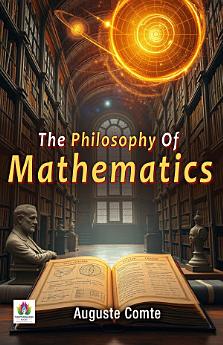The Philosophy of Mathematics
Über dieses E-Book
At the heart of Comte's philosophy is the insistence that mathematics occupies a unique position as the most abstract and fundamental of sciences. He argues that mathematics serves as the foundation upon which empirical sciences are built, acting both as a language and a tool for understanding the world. In a time when the boundaries of scientific inquiry were rapidly expanding, Comte's insights illuminate the significance of mathematics as a precursor to scientific thought and exploration.
Comte categorizes mathematics into various branches, including arithmetic, geometry, and algebra, each contributing distinctively to our comprehension of reality. Through meticulously structured arguments, he elucidates how these fields allow humanity to quantify, analyze, and even predict phenomena occurring in the natural and social worlds. This classification not only reveals the inherent order in mathematics but also reflects Comte's broader vision of a structured, progressive society guided by rational thought.
In his approach, Comte emphasizes the developmental trajectory of human understanding – from theological to metaphysical, and ultimately to scientific. He posits that mathematics has evolved alongside this progression, shaping and refining human perception as it transitions from abstract reasoning to applications in the real world. This philosophical insight deepens our appreciation for mathematics, not merely as a set of rules and symbols but as an integral part of human intellectual development.
Moreover, Comte’s examination of the philosophical implications of mathematics addresses essential questions concerning truth, reality, and the limits of human knowledge. He challenges readers to confront the nature of mathematical certainty, investigating whether mathematical entities exist independently of human thought or if they are constructs of the mind. This inquiry resonates with contemporary philosophical debates, making Comte's work remarkably relevant and thought-provoking.
Comte’s engaging writing style makes complex ideas accessible. He skillfully combines rigorous analysis with persuasive rhetoric, ensuring that even readers new to these subjects can grasp his insights. His exploration does not merely serve an academic purpose; it seeks to awaken an appreciation for the philosophical questions that lie at the heart of mathematics. By encouraging readers to reflect on the nature of mathematical truth, he lays the groundwork for a more profound understanding of the interplay between mathematics and other fields of inquiry.
As the text unfolds, Comte also addresses the societal implications of mathematical thought. He argues that a society guided by mathematical reasoning will be more likely to pursue progress and enlightenment. By advocating for the integration of mathematical principles into education and governance, Comte outlines his vision for a future where reason, science, and mathematics collectively lead humanity toward societal advancement and improved quality of life.
In summary, The Philosophy of Mathematics by Auguste Comte is not merely a treatise on numbers and equations; it is a profound initiative that challenges readers to reflect on the very essence of truth, knowledge, and human existence. With his compelling arguments and visionary insights, Comte establishes mathematics as a cornerstone of intellectual inquiry, integral to the pursuit of enlightenment and progress. This work is an essential read for anyone intrigued by the philosophical dimensions of mathematics and its implications for human understanding, offering a timeless perspective that continues to resonate in contemporary discourse.







